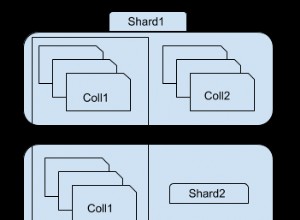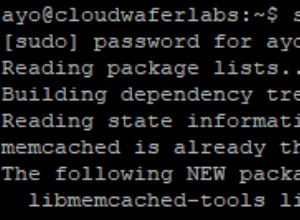Vous pouvez essayer ci-dessous le pipeline d'agrégation.
Remarque mergeObjects
l'opérateur d'agrégation est disponible dans le 3.5.6 + version de développement qui sera intégrée à la prochaine version 3.6 relâcher.
db.collection.find();
{
"data" : [
[
{
"movie" : "starwars",
"showday" : "monday"
},
{
"movie" : "batman",
"showday" : "thursday"
},
{
"movie" : "sleepless",
"showday" : "tuesday"
}
],
[
{
"actor" : "angelina",
"location" : "new york"
},
{
"actor" : "jamie",
"location" : "california"
},
{
"actor" : "mcavoy",
"location" : "arizona"
}
]
]
}
Agrégation à l'aide d'une expression conditionnelle.
aggregate({
$project: {
cp: {
$reduce: {
input: "$data",
initialValue: {
$arrayElemAt: ["$data", 0] // Set the initial value to the first element of the arrays.
},
in: {
$let: {
vars: {
currentr: "$$this", // Current processing element
currenta: "$$value" // Current accumulated value
},
in: {
$cond: [{ // Conditional expression to return the accumulated value as initial value for first element
$eq: ["$$currentr", "$$currenta"]
},
"$$currenta",
{ // From second element onwards prepare the cartesian product
$reduce: {
input: {
$map: {
input: "$$currenta",
as: a"a",
in: {
$map: {
input: "$$currentr",
as: r"r",
in: {
$mergeObjects: ["$$a", "$$r"] // Merge accumulated value with the current processing element
}
}
}
}
},
initialValue: [],
in: {
$concatArrays: ["$$value", "$$this"] // Reduce the merged values which will be used as accumulator for next element
}
}
}]
}
}
}
}
}
}
});
Agrégation( en utilisant $setUnion ).
Cette solution a été ajoutée uniquement pour supprimer l'expression conditionnelle afin de donner un pipeline plus lisible.
aggregate({
$project: {
cp: {
$reduce: {
input: "$data",
initialValue: {
$arrayElemAt: ["$data", 0] // Set the initial value to the first element of the arrays.
},
in: {
$let: {
vars: {
currentr: "$$this", // Current processing element
currenta: "$$value" // Current accumulated value
},
in:{
$reduce: {
input: {
$map: {
input: "$$currenta",
as: "a",
in: {
$map: {
input: "$$currentr",
as: "r",
in: {
$mergeObjects: ["$$a", "$$r"] // Merge accumulated value with the current processing element
}
}
}
}
},
initialValue: [],
in: {
$setUnion: ["$$value", "$$this"] // Reduce the merged values which will be used as accumulator for next element
}
}
}
}
}
}
}
}
});
Mettre à jour
Les deux solutions ci-dessus ne fonctionneront pas avec la répétition des valeurs dans les tableaux, comme indiqué par les commentaires d'Asya Kamsky ci-dessous en raison du $cond incorrect dans la première solution et $setUnion en seconde solution.
La bonne solution consiste à
commencer par initialValue de [ { } ]
Ou
modifier input pour exclure le premier élément comme input: {$slice:["$data", 1, {$subtract:[{$size:"$data"},1]}]},
Terminer le pipeline d'agrégation
aggregate({
$project: {
cp: {
$reduce: {
input: {$slice:["$data", 1, {$subtract:[{$size:"$data"},1]}]},
initialValue: {$arrayElemAt:["$data",0]},
in: {
$let: {
vars: {
currentr: "$$this",
currenta: "$$value"
},
in:{
$reduce: {
input: {
$map: {
input: "$$currenta",
as: "a",
in: {
$map: {
input: "$$currentr",
as: "r",
in: {
$mergeObjects: ["$$a", "$$r"]
}
}
}
}
},
initialValue: [],
in: {
$concatArrays: ["$$value", "$$this"]
}
}
}
}
}
}
}
}
});
Référence :Produit cartésien de plusieurs tableaux en JavaScript




